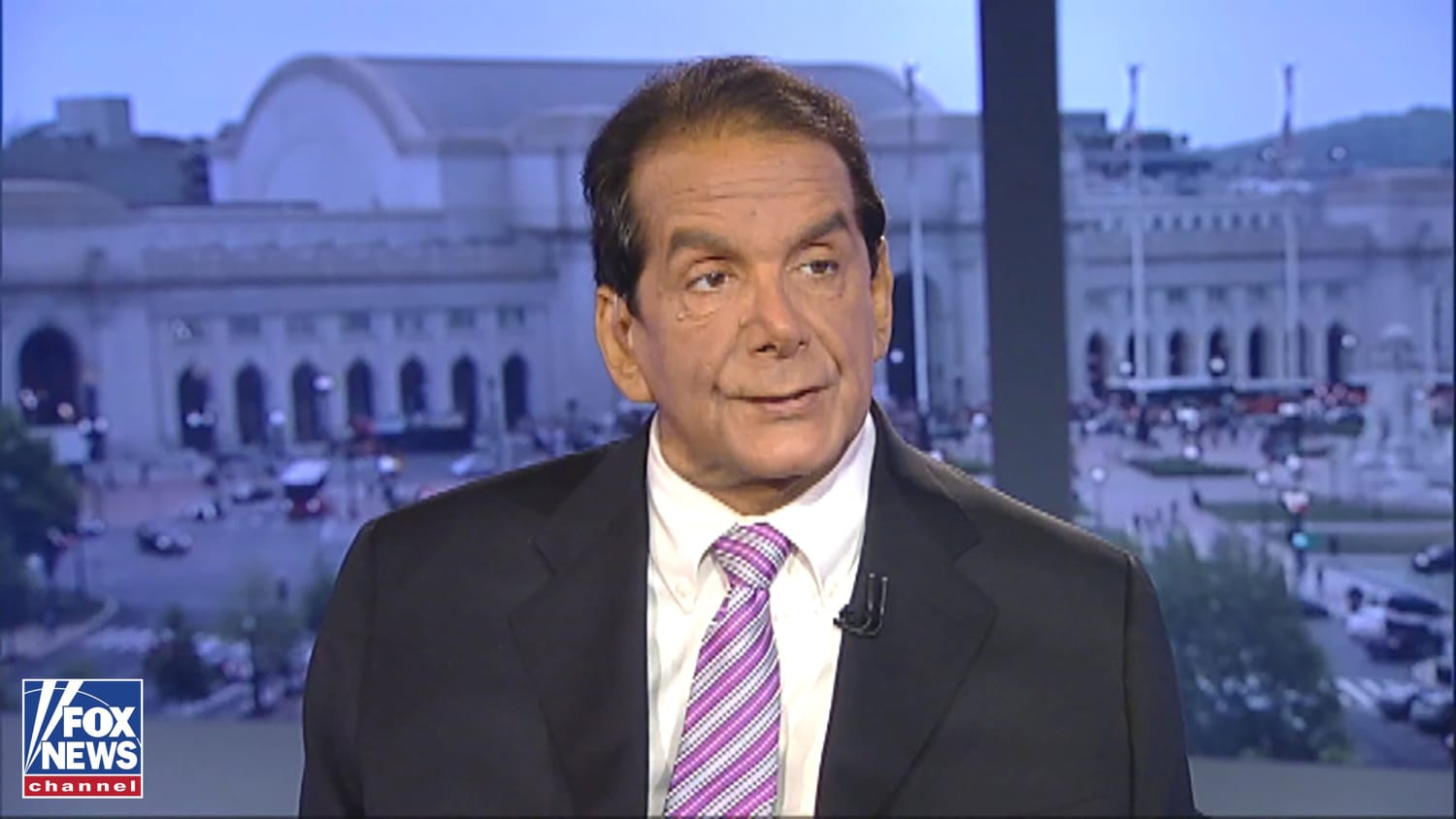By George Will
June 21, 2018

When he was asked how to become a columnist, Charles Krauthammer would say, with characteristic drollery, “First, you go to medical school.” He did, with psychiatry as his specialty because, he said with characteristic felicity, it combined the practicality of medicine and the elegance of philosophy. But he also came to the columnist craft by accident. Because of one.
It has been said that if we had to think about tying our shoes or combing our hair we would never get out of the house in the morning. Life is mostly habitual — do you actually remember any details of driving home last evening? The more of life’s functions that are routinely performed without thinking, the more thinking we can do. That, however, is not how life was for Charles after his accident.
In 1972, when he was a 22-year-old student at Harvard Medical School, he was swimming in a pool. Someone pushed the diving board out, extending over a shallower part of the pool. Charles, not realizing this, dove and broke his neck. At the bottom of the pool, “I knew exactly what happened. I knew why I wasn’t able to move, and I knew what that meant.” It meant that life was going to be different than he and Robyn had anticipated when they met at Oxford.
He left two books at the pool. One was a text on the spinal cord. The other was Andre Malraux’s novel Man’s Fate.
Paralyzed from the neck down, he completed medical school, did an internship and, one thing leading to another, as life has a way of doing, became not a jewel in the crown of the medical profession, which he would have been, but one of America’s foremost public intellectuals. Nothing against doctors, but the nation needed Charles more as a diagnostician of our public discontents.
During the 1980 presidential campaign, Charles wrote speeches for the Democratic vice presidential candidate, Walter Mondale, who did not realize — neither did Charles — that the campaign harbored a thinker who soon would be a leading light of contemporary conservatism. Dictating columns when not driving himself around Washington in a specially designed van that he operated while seated in his motorized wheelchair, crisscrossing the country to deliver speeches to enthralled audiences, Charles drew on reserves of energy and willpower to overcome a multitude of daily challenges, any one of which would cause most people to curl up in a fetal position. Fortunately, with more brain cells to spare than the rest of us have to use, he could think about doing what was no longer habitual, and about national matters, too.
Charles died at 68, as did, 19 years ago, Meg Greenfield, the editor of the Washington Post‘s editorial page. For many years, Meg, Charles, and this columnist met for Saturday lunches with a guest — usually someone then newsworthy; now completely forgotten — at a Washington greasy spoon whose name, the Chevy Chase Lounge, was grander than the place. Like Meg, Charles was one of those vanishingly rare Washingtonians who could be both likable and logical. This is not easy in a town where the local industry, politics — unlike, say, engineering; get things wrong and the bridges buckle — thrives on unrefuted errors.
Medicine made Charles intimate with finitude — the skull beneath the skin of life; the fact that expiration is written into the lease we have on our bodies. And his accident gave him a capacity for sympathy, as Rick Ankiel knows.
Ankiel was a can’t-miss, Cooperstown-bound pitching phenomenon for the St. Louis Cardinals — until, suddenly and inexplicably, he could not find the plate. Starting the opening game of a playoff series at age 21, the prodigy threw five wild pitches and his career rapidly spiraled far down to . . . resurrection as a 28-year-old major league outfielder, for a short but satisfying stint in defiance of F. Scott Fitzgerald’s dictum that there are no second acts in a life. As Charles wrote, Ankiel’s saga illustrated “the catastrophe that awaits everyone from a single false move, wrong turn, fatal encounter. Every life has such a moment. What distinguishes us is whether — and how — we ever come back.”
The health problems that would end Charles’s life removed him from the national conversation nine months ago, so his legion of admirers already know that he validated this axiom: Some people are such a large presence while living that they still occupy space even when they are gone.
GEORGE WILL — George Will is a Pulitzer Prize–winning syndicated columnist. His email address is georgewill@washpost.com. @georgewill
No comments:
Post a Comment